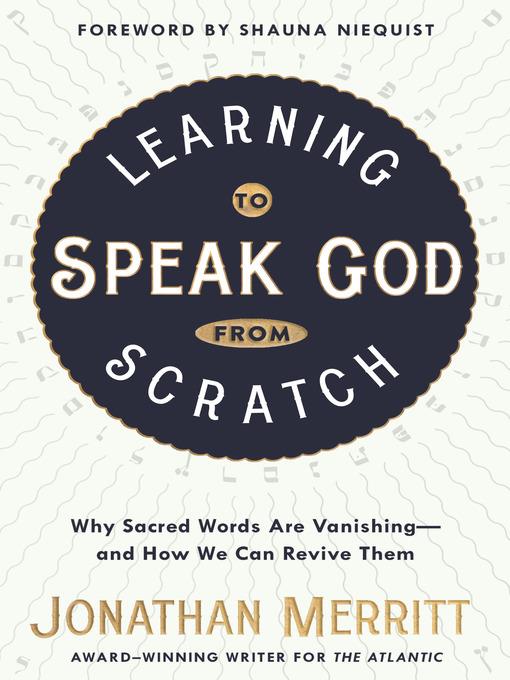
Learning to Speak God from Scratch
Why Sacred Words Are Vanishing—and How We Can Revive Them
کتاب های مرتبط
- اطلاعات
- نقد و بررسی
- دیدگاه کاربران
نقد و بررسی

June 11, 2018
Merritt (Jesus Is Better Than You Imagined) explores the secularization of key religious terms in this revealing if confusing book. When he moved to New York City from Georgia, Merritt discovered that many of his new neighbors didn’t use language related to Christianity in the same way that he did. Grace, pain, lost, spirit, family, saint: these and other words common to the Christian faith seemed, to him, to have lost their traditional meanings. Many charts and infographics detail Merritt’s research into the reluctance to talk about faith, which leads him to the conclusion that Christians are increasingly avoiding faith conversations because of Christian illiteracy, a trend that then causes even greater ignorance of faith. In a bid to recover a common understanding among Christians of sacred words—what he calls “speaking God”—Merritt explores the relationship between words and action, devoting two-thirds of the book to 19 terms and how their meanings have changed. Written in conversational prose as a journey of personal discovery, Merritt’s book reiterates a seemingly simple method for reviving sacred words, but it’s oddly similar to his original critique: understand that “words are malleable” and to allow fluidity in a word’s changing meaning through cultures and in different contexts. Though his charts are illuminating, the confusion in Merritt’s final advice makes this thought-provoking book more puzzling than it ought to be.

August 1, 2018
Using the metaphor of games, philosopher Ludwig Wittgenstein proposed that reality is made within an evolving linguistic community. Merritt (A Faith of Our Own) observes that those who still use the language of a transcendent reality (what Merritt calls "Speaking God") have become so isolated that no one outside that community understands it. Merritt provides three strategies to respond to this isolation: attempt to ride things out, adapt by expressing ideas of the transcendent with metaphors of the dominant culture, or allow language of the transcendent to engage with the larger world. He argues that the first option ossifies a language to irrelevance and the second empties it of meaning. Using words such as "creed," "prayer," "mystery," "sin," and "grace," Merritt explores the third option, examining the development of religious language. VERDICT Merritt provides a useful method by which believers can understand themselves and be understood by others.--James Wetherbee, Wingate Univ. Libs., NC
Copyright 2018 Library Journal, LLC Used with permission.

























دیدگاه کاربران